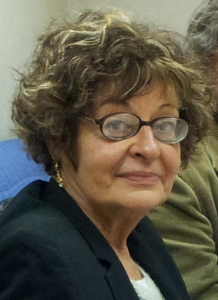Di Rosalia Grande
“I wish someone would listen to me!”

Di Rosalia Grande
From this statement begins the search by those who wish to undertake a coaching process. In Italy and in the world there are many styles, approaches and structuring, the reason being that there are a wide range of approaches to offering of this “service”, Coaching is useful to the individual and for the society, too, as bearer of values of openness, the need for truth, authenticity and human understanding. Approaches may be based on relational counseling, systemic, gestalt, transactional, constructivist, psychodynamic, Rogerian, philosophical (mind-body, bioenergetics, artistic, counseling, spiritual, holistic, trans-personal) foundations. There are also many fields of application: individual, couple, family, group, institution, school, hospital, politics, business, art, religion… So many styles, so many forms. But there is a common ground, which is that of listening. Listening relates to empathy.
“I wish someone would listen to me!” It may seem at a glance, a trivial statement, but for a careful observer of human life it does not sound like that. If many more people listen than they are doing today, our planet would be very different. There would be many fewer conflicts. There would be no incredible economic inequalities. There would not be people who are vulnerable left to your own devices.
Maybe, indeed it is certain, there would be fewer divorces and less reckless marriages. At the workplace there would be fewer exploited people. The economy would be subjected to crisis much less than today. Different ways to live ethically would not be branded as sinful, unacceptable, shameful, etc. School would be a much more vibrant than it is now. Instead of the destructive and silly clash of generations, there would be a dynamic confrontation in which all parties would learn from each other, thereby gaining experience and knowledge.
But people do not listen, usually. When you point this out to someone, it is not uncommon for them to rise in protest and say “I’m listening, of course!” Maybe he is “hearing”. In fact, Hearing is not listening. Hearing is an activity that sets in motion the auditory nerve, the cells of the ear and its structure. Listening moves other centers – the heart, the hypothalamus, the amygdala, the frontal lobes, etc. Not only this, but also the whole body is active listening, because action is not partial, but complete. Even bones are involved.
Listening is a relational action. Hearing can remain in the ego, and the answer – when you hear and nothing else – is usually mechanical, somehow pre-constructed. Not rarely it is full of judgment not very compassionate, but used to take personal advantage, a power over others immediate or delayed. Hearing without listening involves a clash between moral ideologies, ways of doing things, theories, metaphysical positions and not the meeting or a real connection between real people. In place of the person there is an impersonal world. Instead of the “speech” there is a rigmarole. Instead of thought processing (which derives from listening) there is a set of elements scattered and non-viable. Many observations, research and clinical experiences have shown how that the damage that distracted parents who do not listen or who distort what they “heard”, make for their children is high. Not being listened to leads to feelings of being excluded, amorphous and worthless. The child is doubtful about himself, his intelligence and his ability to be a subject of interest and a decent person.
If you find someone who listens to you, you are “lucky”. This person is someone who takes the trouble to understand and not distort what we say and feel, to understand also what is implied and does not turn it against us. Listening with “empathy” is an art, because while you listen, you accompany the other in his speech. Silently, it is encouraging and welcoming. It strengthens the speakers’ motivation to take care of themselves, believing in the possibility of not only improving their condition at the time, but also to experience a better life, includings self-construction, self creativity.
Active listening, participating, is the basis of love. In coaching there are no enemies, but people with problems. Their experiences may be framed in a different way, touching new points of view and less explored perspectives that enrich the overall self image and that lead to discovering unused resources. The client helps to define the situation and this contribution is decisive for success. It is an “adult-adult work”. Individuals who want to step into leader roles can learn to listen in ways that support their effectiveness.
About the Author
Di Rosalia Grande is a Counselor supervisor, naturalist doctor, writer, director of the School for Relational Counseling in Rome, Italy.
